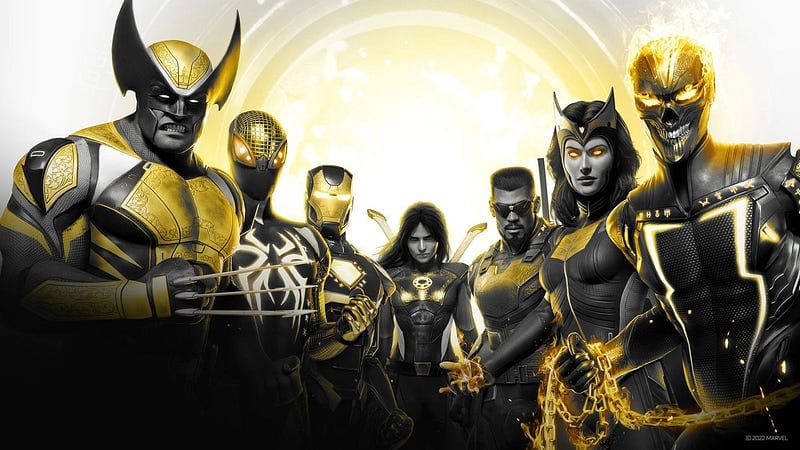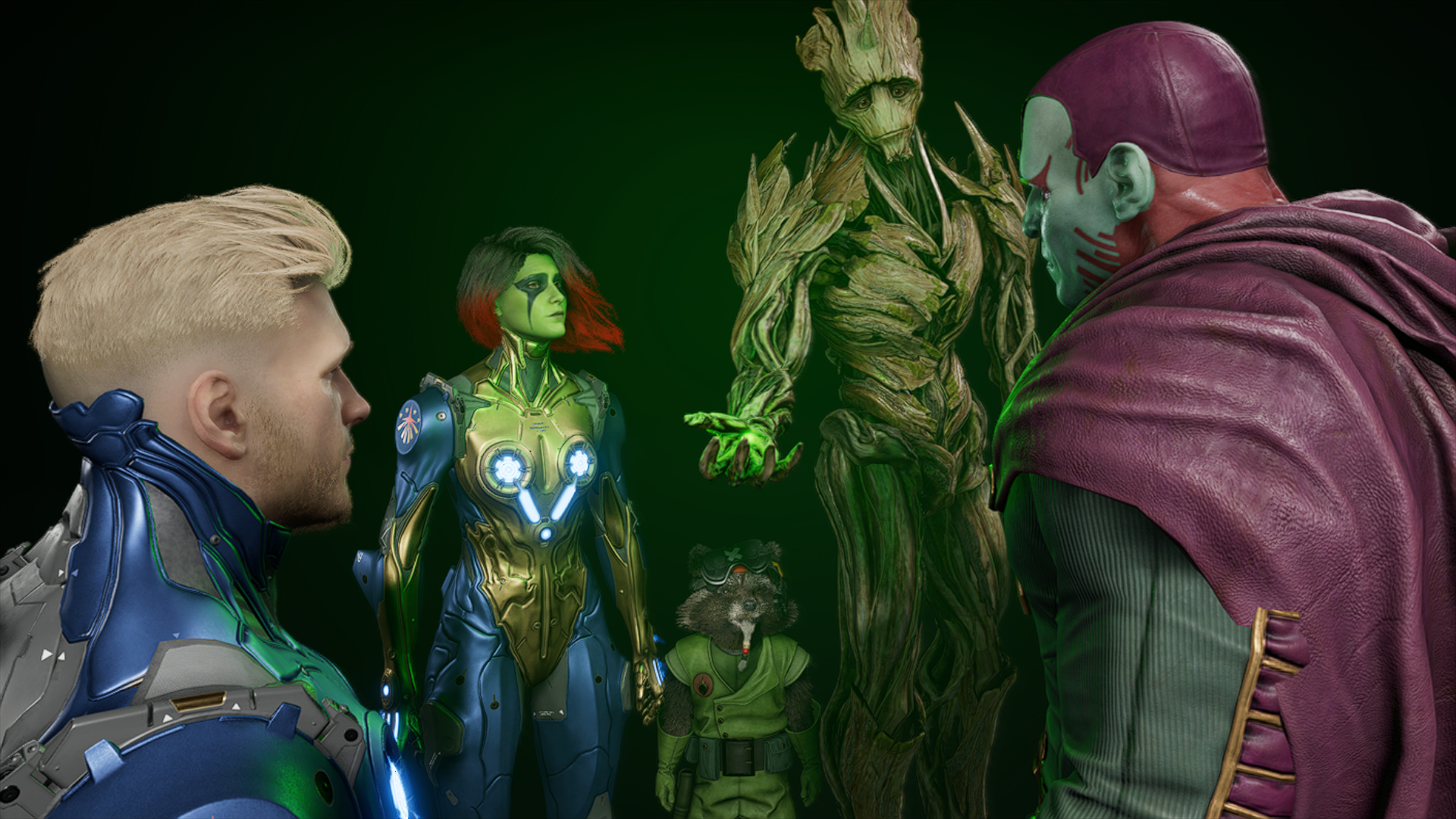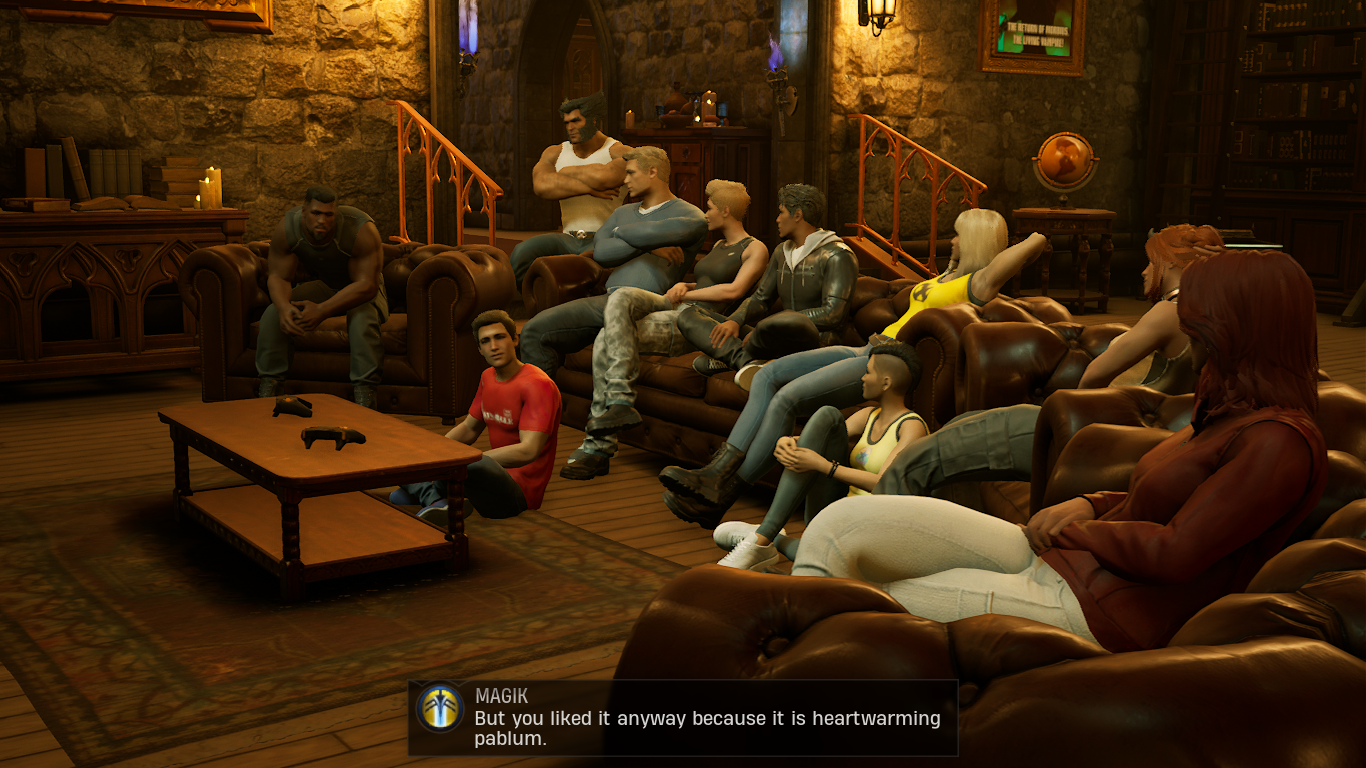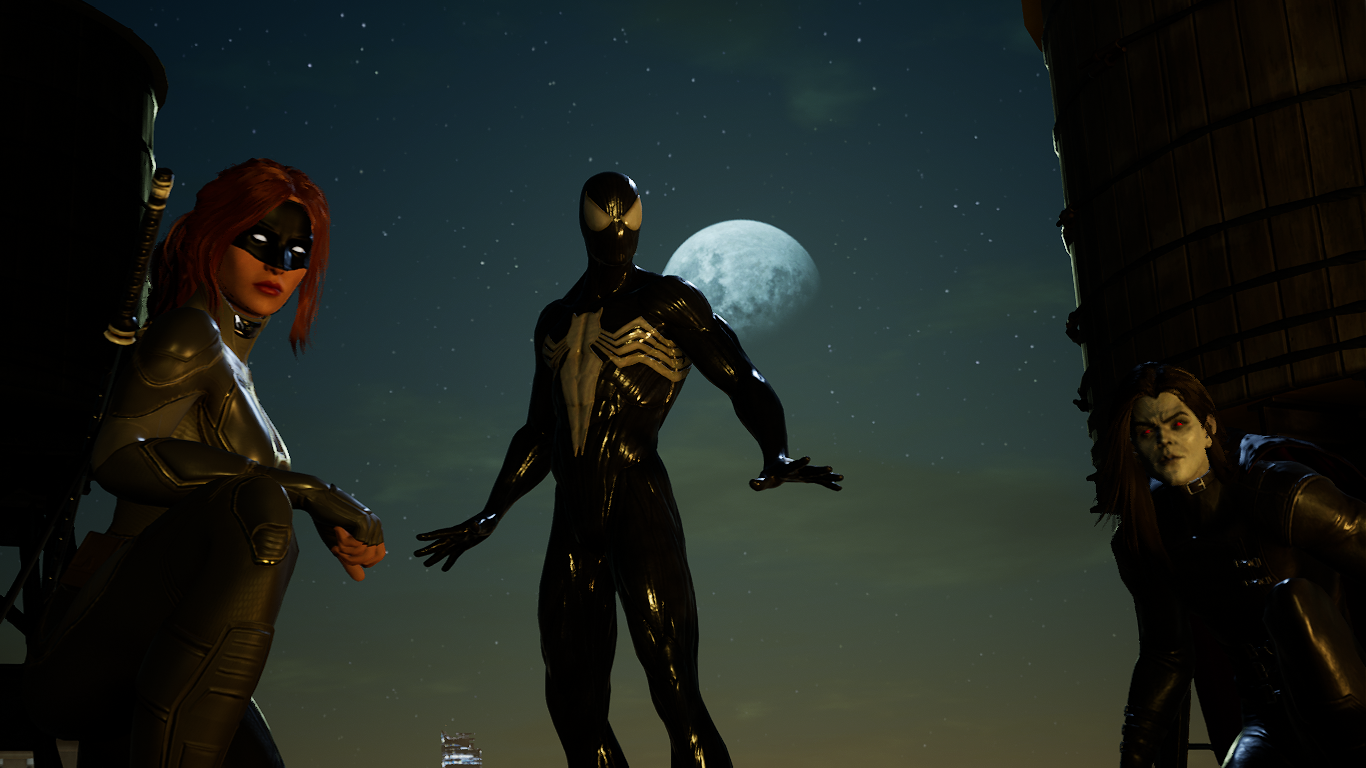Web-Less: Marvel’s Weirdest Single-Player Games Shine in Their Own Way
An ode to the odd

Do you remember Midnight Suns? Back in December of 2022, Marvel released a hybrid game of turn-based strategy, card-based combat, and friendship role-play all in one executable file. They did so with a roster of interesting characters, such as Magik (of New Mutants fame) and Morbius (of Morbius fame). This novel combination of genres and personalities results in an unexpected melting pot of creativity, but an expected outcome of mediocre sales.
Sadly, hearing turn-based and card-based in the same sentence doesn't spark the imagination as much as swinging through the streets of New York. But how about Guardians of the Galaxy? Does that tickle your memory? Not the trilogy of movies, mind you, but the 2021 adventure game. Arguably, being published by the same company that sold the previous year's live-service Avengers game didn't do it any favors. These relatively recent releases did not come with the fanfare equal to Insomniac's Spider-Man 2, nor did they receive any significant clamoring for sequels. Nevertheless, they each brought something unique to the superhero video game genre, and funnily enough had a thematic through line that tied them together. In retrospect, I'd argue that Midnight Suns and Guardians of the Galaxy bear more resemblance to the Marvel Cinematic Universe than any other game wearing the red and white logo, which may be one of the reasons for their downfall.

A story about found family
Both games feature an ensemble of characters that the player can get to know, each with their own personal struggles and character arcs. In Guardians of the Galaxy, you play as Peter Quill–Star-Lord–the human son of an alien with an elemental gun. As your relationship develops with the rest of your ragtag group of Guardians, each one reveals a personal obstacle that they must overcome to become someone wiser and whole. Every member has a metaphorical demon that you have to help them face, taking shape either as a phobia born of trauma, or grief with an added difficulty in letting go. After you succeed in these intimate character moments, your team gets stronger by way of unlocking new skills that you can activate in combat.
Both games feature an ensemble of characters that the player can get to know, each with their own personal struggles and character arcs.
This synergy from story to character to gameplay makes the experience of playing the game fly by, like spending quality time with real people. Every member of your team, from the non-playable characters to Peter Quill himself, feels three-dimensional, with believable personal motivations and character flaws. And when you take control, away from the cutscenes and pre-programmed conversations, they banter like real friends, bringing each of their oddball charms to the table. They joke and mention past anecdotes of unseen adventures, messing around like matching pairs of misfit shoes. Once the credits roll, you'll miss the time you had with your makeshift family, the one who's not perfect, sure, but also the one who never demands perfection, who always accepts you for who you are.

Roleplaying as a super friend
Midnight Suns takes this idea of relationships to the next level, giving players the ability to level up their friendships with every character in the roster, from household names like Spider-Man (voiced by Insomniac's own Yuri Lowenthal) to the relatively unknown Nico Minoru. You can play cards with Wolverine, watch movies with Captain America, and even paint with Morbius. And each one of these social activities entails a conversation with each character that divulges more about their personality, until you reach the maximum friendship level, unlocking a special skill to use in combat. Sound familiar? You can also give them curated gifts to quicken things up, or bringing them often to missions usually does the trick.
In this game, you play as a completely new character, an avatar that takes your place in the world of the game. Through them, you can get an outsider's perspective on your favorite heroes, and interact with them as if they were your friends. This game offers an opportunity not available in other mediums, where you don't necessarily control the Marvel heroes (except in top-down combat scenarios), but instead hang out with them. You get the exclusive ability to ask them questions, such as what they're like or about their hobbies. You don't get to be Spider-Man, you get to be best pals with him. You even get to give him advice on how to not be awkward around Venom.
In a time where superheroes have oversaturated the cinematic medium, the twilight of superhero movies may signal the resurgence of superhero games, specifically how they can work in many genres, not just action adventure. Yet however exciting the announced upcoming Blade, Iron Man, and Wolverine games may seem, they appear to be catering back to fan expectations, as solo action adventures in different costumes. And though I look forward to all of them, I am a little disappointed there are no more offshoot games that take wild swings with the various superhero IP. Often considered the House of Ideas, Marvel again seems to be playing it safe with their upcoming lineup, falling back on what's worked in the past, not unlike the way they handled their cinematic ventures.

Same but different
Both games also feature team-based combat, though each takes a different method of actualizing it. While Guardians is third person, having you order your teammates around according to their particular abilities, Midnight Suns opt to take a God's eye view, with you controlling each character as you would do with action figures. Neither game is a power fantasy where the player controls a one-man army, such as in the Arkham or Spider-Man games. Instead, the player is immersed in a lived-in world full of superheroes, where other people are also special, and cooperation is the name of the game. Here, you are a leader but feel more like the head of a family.
The gameplay mechanics and story segments work in tandem to encourage the player to build trust with their teammates. In Midnight Suns especially, the more you bring a character into battle, the stronger they get, but also the more they open up about themselves. So you make choices, both in dialogue and in action, that will win you some favors to some part of your team (but not others), which even decides the characters who contribute to the game's finale.
The player is immersed in a lived-in world full of superheroes, where other people are also special, and cooperation is the name of the game.
Speaking of dialogue, one of the reasons these games were not as critically or commercially successful as they deserve to be, is perhaps because of how similar the writing is to the style of Marvel's Cinematic Universe, complete with quips per second. The actors may be different, but the characters may as well be taken straight from the silver screen. This case of mistaken identity, not being based on the movies but definitely inspired by them, makes them exist in continuity limbo, unable to stand on their own two feet. Whereas Insomniac's Marvel universe took its own creative liberties on certain characters and stories, stamping them with a trademark style, these two don't seem to do the same.
What they excel at, however, is maximizing one of the advantages of being a video game: the flexible duration of the story. The lengthy campaign makes sure every character gets their spotlight, depending on who the player prefers. While in the movies the writer and director decide which character to flesh out, in a video game such as this, the player gets to choose which one they want to spend time with and center in the proverbial bright lights of the camera. In a story centered around a band of outsiders (who are also superheroes), both games give a genuine reason for existing. Decidedly apart from microtransactions and online systems, at their core is a heartwarming tale where players get to roleplay as someone special, in a world where everyone's special, which is to say it is something quite like our world, except with more lasers and whimsical wizardry.
In Midnight Suns, you get to help Ghost Rider–the flaming-skull-headed muscle car driver–with his impostor syndrome, raising his self-esteem, and in return be thanked by the Spirit of Vengeance. And isn't that what good superhero stories should be; where real-world problems are dressed in neon and dealt with in interesting ways? No one knows what it feels like to breathe fire, but everyone knows what it feels like to be insecure in a group. And it is this sweet spot between relatability and absurdity where these games shine. So when the credits rolled, I took something away from the experience, not the guilt from money lost in loot boxes, but hope in a heightened world, where everyone is accepted no matter how silly their name or weird their attire. And isn't that just super?
